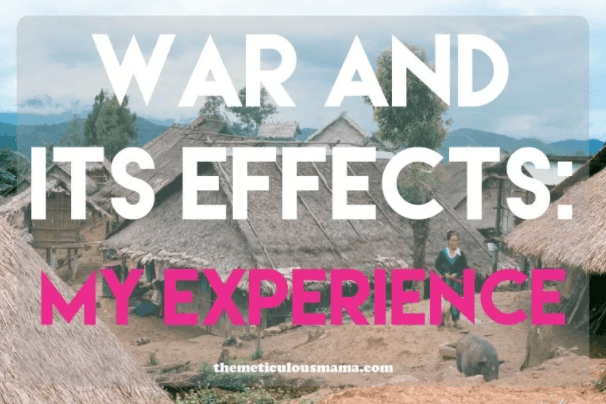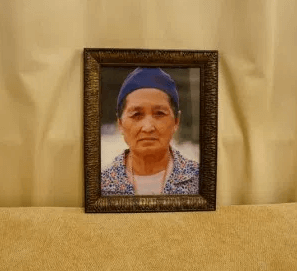
 A Minnesota PBS Initiative
A Minnesota PBS Initiative
The following originally appeared on The Meticulous Mama blog on October 4, 2017, and was shared with the author's permission.

This last week I watched two movies related to war in Southeast Asia — Loung Ung and Angelina Jolie’s First They Killed My Father, and America’s Secret War: Minnesota Remembers Vietnam. Both movies moved me. Not only because they are or are closely related to the story of my people — the Hmong — but also because with war, especially war in those times, you often only hear the stories of soldiers and those on the front lines of conflict. Both of these films, beautifully weave the perspective and stories of the women and children. Those we often forget who also experienced the wars firsthand.
I know now that I could never comprehend the emotions and physical struggles that my parents, grandparents, aunts, uncles and cousins faced.
As I drove home from watching America’s Secret War, I began to think about my own family’s story. I knew my family went through a lot to find their way to the U.S. However, after watching the film, I know now that I could never comprehend the emotions and physical struggles that my parents, grandparents, aunts, uncles and cousins faced. I was born and raised in the U.S. Sure, I faced acts of racism from time to time. But, there was never a time in my life that I felt like the safety of my life was threatened.
Realizing this, I feel so privileged. If I, a first-generation, Asian, Hmong, female, American, can feel privileged, than how could anyone argue that white privilege does not exist? That is a subject for another post. However, I had to acknowledge it. Especially as I continue to ponder about my family’s story.
My paternal grandparents lived with my family until they passed away. When I was very young my maternal grandmother passed away. I have no memory of her. My paternal grandmother therefore, was the only grandmother that I have memories of. I love to hear stories of people and their grandmothers. How much love and affection their grandmothers showed them. I especially love to hear these stories because my relationship with my grandmother was nowhere near that of the typical grandmother grandchild relationship.
It was clear in my family that I wasn’t anyone’s favorite child. I do not hold onto this story. I point it out merely to help lay the context of my experiences. My grandmother couldn’t help but point out all of the things that were wrong with me. From the way I ate, to the size and form of my forehead. My lack of enthusiasm for household chores didn’t help either. Nothing was off limits. Especially because I was a girl.
This continual judgement throughout my childhood could have ended sadly. I could have taken all of this criticism, internalized it and believed every bit of it. It could have resulted in the spiraling down of my life. An acceptance that I would never amount to anything. Instead, however, I did the complete opposite. I remember how I would sometimes think as a child that I would show my grandmother how wrong she was about me. I excelled in school and when I turned 18 I could have not been more happy to pack my bags and leave the negativity behind.
In my first couple of years in San Francisco, I rarely talked to or visited my grandmother. She had moved in with my aunt for the majority of the time, so when I went home to visit I didn’t see her much. When she did come to stay with us, usually over the weekend, I was hardly home, and now that I was older she didn’t criticize me as much and therefore didn’t really have much to say to me.
My parents went through a divorce while I was in college. When I returned home to visit shortly after, my sister suggested that I go and visit my grandmother because she wanted to see me. “Why would she want to see me?” I thought and said out loud. “She hates me.” I reluctantly gave in and went to visit my grandma. I’ll never forget that day. As soon as she saw me, she started crying. The divorce had hit her really hard. My younger siblings had moved out of state and having all lived in the same house it was like she had lost a part of herself. Aside from the burial of my grandfather years prior to this day, this was the only time I ever saw my grandmother cry.
My grandmother had built up so many walls around her. Aside from angry and demanding, she didn’t show many other emotions, to me anyway. Looking back now and after watching First They Killed My Father and America’s Secret War I began to understand why. Experiencing war and loss has lifelong effects. Effects that those of us who have not experienced war could never comprehend.

My grandmother lost two children in her lifetime. She now lived in a country where she did not speak the language and relied on others for help. As a woman in our culture, especially back then, men were always seen as more important, and women were put here to serve them. All of these experiences shaped my grandmother’s story. I’m sure with this story brought deep pain and insecurities which she deflected onto others like myself. We deflect feelings when they have such a strong hold on us that we no longer know what to do with them.
Tony Robbins is famous for saying that if you’re going to recognize someone for all of the wrong they did to your life, you also need to recognize them for all of the right they did for your life. In my case this would mean that although I didn’t have a typical relationship with my grandmother, had she been the grandmother that I so desired, I most likely would not have turned out the way I am today.
I don’t hold anything against my grandmother, and I am learning to see my experiences and her life through compassion. One reason I loved America’s Secret War is because the war and the horrificness of it is not something that many Hmong people talk about on a regular basis. After watching the movie and seeing the sacrifices and heartache involved, and hearing first hand stories, I couldn’t help but feel compassion for everyone who experienced this horrible war firsthand, including my grandmother.
If you’re going to recognize someone for all of the wrong they did to your life, you also need to recognize them for all of the right they did for your life... had she been the grandmother that I so desired, I most likely would not have turned out the way I am today.
There is nothing that we could do, as the generation that benefited from the courage of our parents and grandparents, to repay them for what they were willing to go through to get to freedom and provide a better life for us. All that we could do is embrace and appreciate life to its fullest potential.
My grandmother was illiterate. She never learned how to read and her signature was a simple “x”. As her granddaughter, just two generations later, I can get lost in books for days and have the great honor, ability and privilege to share this small snippet of her life with you. That is one of the greatest miracles of my life.
Story Themes: America's Secret War, Death and Loss, Divorce, Family, Forgiveness, Hmong, Racism, Read, Reconciliation, Secret War, Sexism, Suzanne Joachico, White Privilege